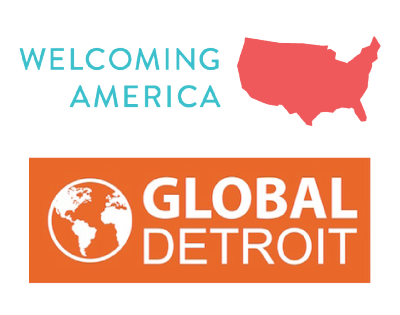Network Response to Unaccompanied Minors
At its core, the WE Global Network is focused on economic development. It is comprised of and designed for regional economic development initiatives working to tap into the opportunities created by immigrants. While this economic development focus often insulates our work from the daily headlines about federal immigration reform, it is impossible for the Network and the local organizations that comprise it not be moved by the humanitarian crisis our nation and hemisphere are facing involving unaccompanied children (UAC) from Central America crossing the southern border to the U.S.
More detailed reports are now surfacing about the horrors that many of these children face in their home countries. The political rhetoric regarding the crisis can be difficult to stomach. And the challenges can be frustrating, highlighting that we may have longer to travel than we realize before our integration visions become reality.
Our partners (and now parent organization) at Welcoming America have done an excellent job assembling background information on the situation, putting together a series of webinars about the issue, and have worked to highlight the voice of cities and local actors who have been speaking out and taking action to support unaccompanied children. A full listing of these resources is here.
WE Global Network work, at its core, is rooted in the American Dream and the power of America’s promise of economic opportunity and freedom to inspire folks from across the globe to contribute to this nation’s economic prosperity. That promise is very much tied to the historic role the nation has played in offering refuge and sanctuary to those fleeing persecution. The vision of a Rust Belt where local communities are prospering from the contributions of immigrants and refugees includes a place where our communities are providing a home to those seeking refuge as well as a more peaceful, free, and prosperous life.
Beyond the core aspects of this humanitarian crisis, the policy issues playing out around unaccompanied children go beyond simply the impacts on public attitudes towards the immigration issue. Unfortunately, the lack of appropriate resources to deal with the crisis is a significant threat to programs that serve the 70,000 refugees being resettled in the U.S., and in WE Global Network cities, now and going forward.
The Office of Refugee Resettlement (ORR) responsible for the care of UACs also funds longstanding programs like Match Grant, Targeted Assistance Grant, and the Refugee Social Service Program, all of which help refugees find employment. ORR likewise funds competitive grants that help refugees start childcare businesses, develop their own community organizations, match savings to buy homes and go to college, and more.
These longstanding programs have demonstrated excellent outcomes. For example, the International Institute of Buffalo (IIB), an active Network organization, runs an employment grant supported by ORR’s Match Grant program. The employment stats for 2013 show 83.1 percent of IIB’s clients are working at 180 days, compared to a national rate of 69 percent. These are employment rates that likely exceed even the Department of Labor-funded workforce programming.
The huge increases in the numbers of UAC children crossing are leading to unprecedented demands on ORR and without increased appropriations from Congress, ORR is likely to either short change unaccompanied minors or cut existing programs elsewhere—both of which have negative impacts on work in our communities to foster economic growth.
Aside from the effect this will have on local Network organizations that run ORR programs, the more destructive impacts would fall on refugees and local economies if funding were cut from employment and overall integration supports. We see the refugee population as critical not only to the future of Rust Belt cities, but as providing a great example of how immigrants have economic impact. A recent piece published by Empire State Future, a smart growth and sustainable development collaborative in New York, makes a compelling argument for UAC as part of a larger refugee repopulation strategy to revitalize cities in our region.
Unfortunately, the UAC issue is coming to a head just as WE Global Network and its local organizations are gaining traction and seeing unprecedented investment in immigrant economic and community development. It is happening on the eve of our second convening and the White House Integration Summit.
The President proposed an increase in ORR funding to Congress on July 8th. Congress has taken no action on this request and appears unlikely to do so before the November election. Pitting support for children escaping persecution against adults (and children) escaping persecution makes no sense. Until the federal government can develop a stable plan to respond to the UAC population, funding for the programs serving refugees needs to be preserved.
We urge WE Global Network organizations and supporters to consider weighing in with your own networks, editorial boards, local officials, and other leaders about how the UAC crisis relates to the long-term immigrant-focused economic development vision. Now is not the time to remain silent.


